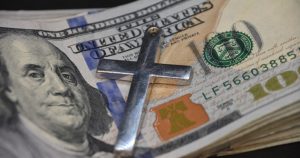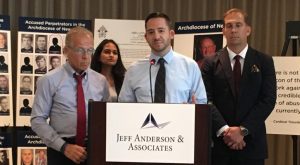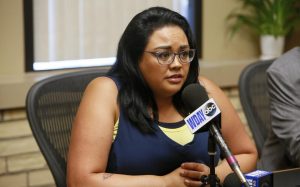Article Title
No answers from Washington archdiocese about McCarrick’s money
Source: Catholic News Agency
Author(s): Ed Condon
Date: July 12, 2019
Synopsis of / Excerpts from Article
According to the article:
More than one year after the announcement of allegations of sexual abuse against former cardinal Theodore McCarrick, the Archdiocese of Washington has continued to refuse questions about McCarrick’s use of a personal charitable fund.
McCarrick funnelled hundreds of thousands of dollars through what was known as the Archbishop’s Fund, and reportedly made gifts to senior Vatican officials, even while the fund remained under the charitable auspices of the archdiocese.
Senior sources close to the Archdiocese of Washington have confirmed that archdiocesan records include the names of individuals, including senior Vatican figures, to whom McCarrick made payments from the fund.
But the Archdiocese of Washington has declined to disclose sources, sums, and uses of money, though it has acknowledged that the fund exists.
The archdiocese has also declined to comment on whether Archbishop Wilton Gregory will address accusations of financial misconduct by McCarrick, or publish the names of bishops who personally received gifts from the disgraced former archbishop.
The former cardinal’s reputation for gift-giving and participation in so-called “envelope culture” has come under renewed scrutiny following recent revelations concerning former Wheeling-Charleston Bishop Michael Bransfield.
Like Bransfield, McCarrick has faced a string of allegations of sexual misconduct, dating back years, and his ability to offer large financial gifts to other bishops has come under scrutiny as a possible reason he was able to operate unchecked for so long.
Several sources, among them cardinals, officials of the Roman curia, and McCarrick’s former staff members, have told CNA about McCarrick’s habit of visiting Rome and distributing cash or personal checks to senior officials.
In light of the Bransfield report, CNA asked the Archdiocese of Washington if it would publish the names of bishops and other Church figures who had personally received gifts or donations from McCarrick’s Archbishop’s Fund.
On July 10 the archdiocese declined to comment in response.
CNA also asked if the archdiocese could confirm whether information relating to the Archbishop’s Fund, including the names of beneficiaries, had been included in a report submitted to Rome as part of a Vatican investigation into McCarrick.
The archdiocese declined to comment.
CNA also asked if the archdiocese would be willing to comment, even in a general way, on the outstanding questions of financial propriety around McCarrick and Archbishop Gregory’s willingness or ability to offer a clear account of what has happened.
The archdiocese again declined to comment.
In August 2018 the Washington archdiocese told CNA that the fund was designated for McCarrick’s “personal works of charity and other miscellaneous expenses” and audited annually, along with all other archdiocesan accounts – although not included in any published financial reports or materials – and that “no irregularities were ever noticed.”
If personal payments to Church officials in Rome were offered with money from the Archbishop’s Fund, it is unclear what “charitable purpose” or “miscellaneous expenses” they would have been for, or how such expenditures would have been recorded.
Sources close to McCarrick and familiar with archdiocesan records have told CNA he made multiple “donations” to individuals with fund resources, and sources close to the archdiocesan chancery previously have told CNA that annual expenditures may have been examined only to ensure either a “broadly charitable” purpose or a “reasonable” miscellaneous expense.
The archdiocese declined to comment on the auditing process and standards used to evaluate McCarrick’s use of the Archbishop’s Fund over the years.
In February the archdiocese told CNA that although the account was held under the umbrella of the archdiocese, the funds were considered to be McCarrick’s own to use as he wished, but a former financial advisor to the archdiocese told CNA on July 11 that the fund was, for accounting purposes, archdiocesan money.
Despite archdiocesan refusal to comment, CNA has learned that McCarrick established the Archbishop’s Fund during his time in Newark, using money received through personal financial gifts he obtained in the course of his ministry, through private fundraising initiatives, and from grantmaking foundations for which he served as a board member.
According to former chancery officials in Newark and Washington, when McCarrick moved between the archdioceses in 2001, he arranged for the money to be transferred from his fund in Newark to a newly created Archbishop’s Fund in Washington.
Several sources familiar with the transaction told CNA that the transfer took the form of a check sent to Washington by the Archdiocese of Newark. Multiple sources told CNA that the check’s amount was well in excess of $100,000.
Later, as a cardinal, McCarrick used his position as a board member on various grant-making foundations to assign regular five-figure grants to his own foundation, with two such foundations alone registering donations to the Archbishop’s Fund totaling $500,000.
McCarrick reportedly cultivated a network of very wealthy individuals who would donate tens of thousands of dollars to his discretionary fund.
“People would give him money all the time, in parishes when he’d visit as archbishop, but also privately – he was a natural fundraiser,” one former priest-secretary told CNA.
Another former chancery official told CNA that even during his time in Newark, McCarrick attracted considerable personal support from friends and benefactors.
“We are easily talking about six-figure sums every year,” he said.






